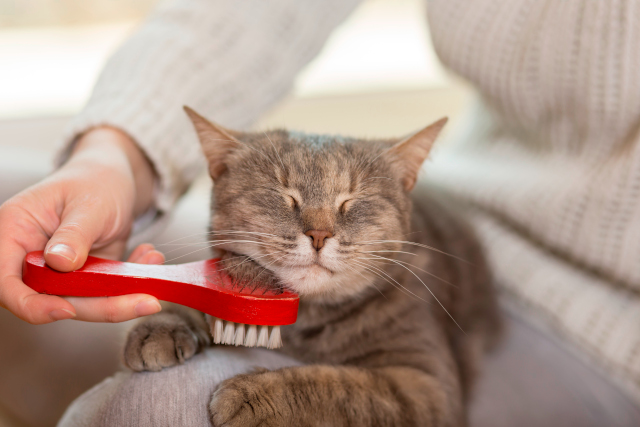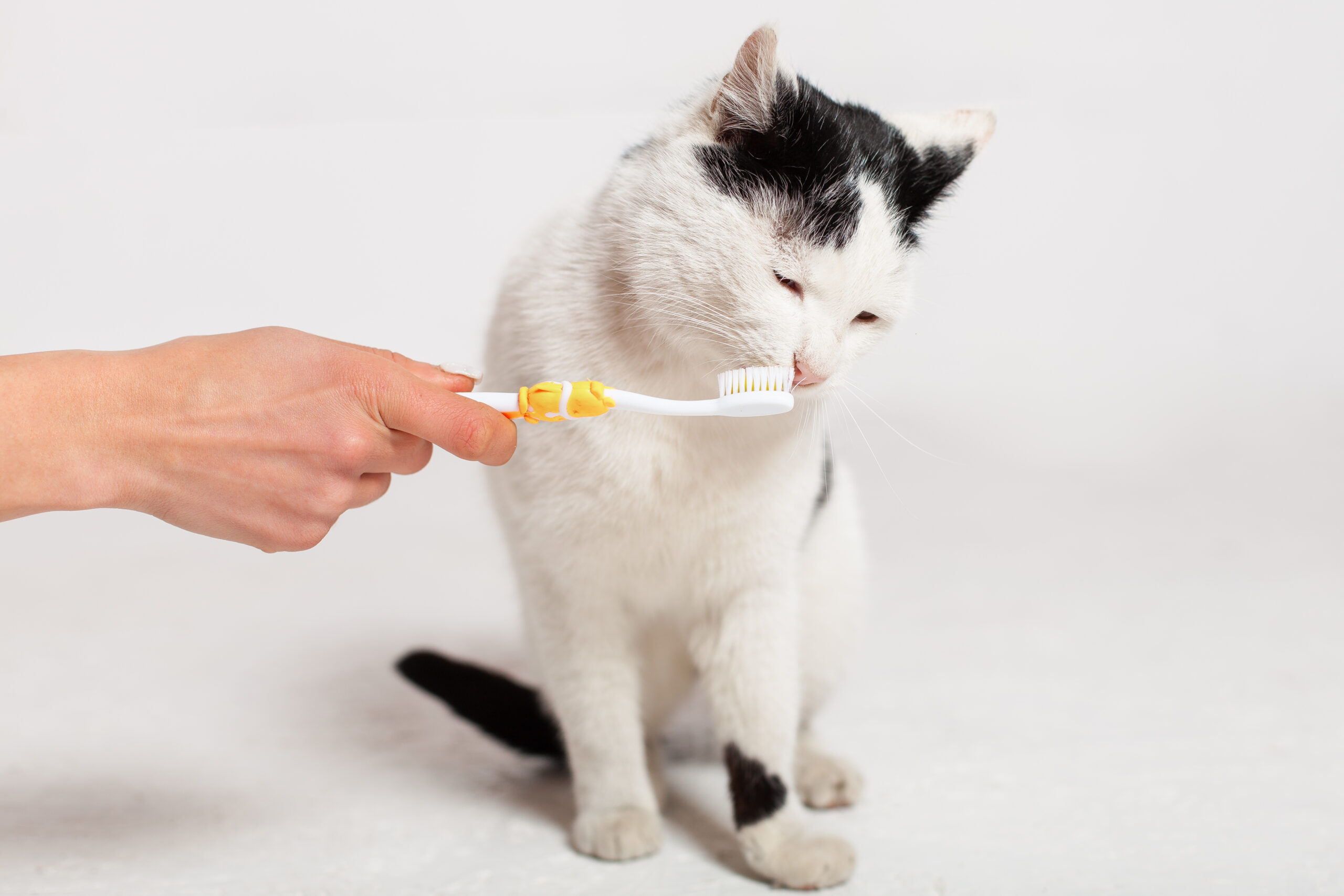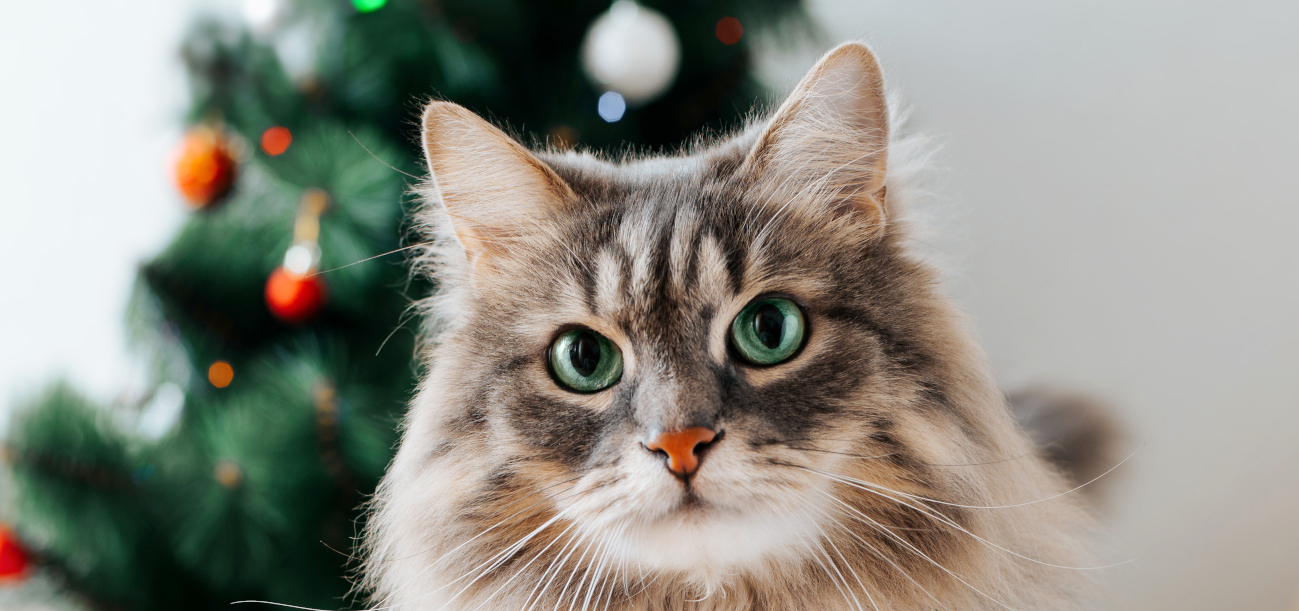Though cats are known to be quite self-sufficient when it comes to grooming and hygiene, even the most independent cats sometimes need a helping hand to stay in their best possible condition. Cat grooming is an important part of being a cat owner, and one that you should always make time for at least a few times a month, if not even more.
Why is it important to groom my cat?
A clean cat is a healthy cat. Why? Because consistent grooming will allow you to easily keep track of any minor issues developing before they become bigger problems. It will also ensure you’re taking a proactive approach to the health and safety of your cat.
So with all this in mind, what kind of grooming should you be doing with your cat? Here are our top five cat grooming tips for a healthy and clean kitty.
1. Brushing
Brushing your cat is one of the most essential parts of a healthy grooming routine. Not only does it remove excess hair, dirt, grease, and debris from their coat, but it has other benefits as well! Regular brushing removes flakes of dead skin and has also been proven to improve blood circulation to the skin, improving its overall condition. Regular brushing will also help your cat keep its shiny coat.
Brushing is particularly important during shedding season, which occurs to cats in much the same way as dogs! Though some cats might shed year-round, it’s most common for cats to shed the bulk of their excess hair during spring and summer. This is done to prepare for higher temperatures and can lead to lots of cat hair around your home. We recommend weekly brushes during shedding season to help your cat stay cool and prevent excess hair in the house.
Brushing is also a great opportunity to check your cat’s skin for anything out of the ordinary, whether scratches, flea or tick bites, lesions, and unusual bumps. By regularly brushing your cat, you’re more likely to catch these problems sooner, allowing you to treat them or have them examined by your vet more quickly than you otherwise would.
If you do notice anything out of the ordinary, it’s important to seek expert care from your veterinarian. Whether you find something irregular on your cat’s skin, or if you’re worried that they’re shedding too much (i.e. to the point of bald patches on the skin), it’s a good idea to have them examined as soon as you can.
2. Nail trimming and paw checks
Your cats need healthy claws and paws to be able to stand, walk, and support their body weight. For their own health, it’s important that you’re checking both on a consistent basis, as well as giving them regular nail trims.
You’ll need to gradually get your cat adjusted to the nail-trimming process, so make sure to do it in a comfortable place and take lots of time to get them to feel at ease with the sound of a pair of clippers. One way to do this is to trim a piece of dry spaghetti, which will help your cat get used to the sound before you attempt to actually trim their nails.
The other part of this type of grooming is checking your pet’s paws. Sometimes cats can get injuries on their paw pads from walking on something sharp or getting splinters, and they can also become dry due to the weather. Be sure to give your cat’s paws a clean and a moisturize if necessary when you check them.
3. Ear examinations
Your cat depends on their keen hearing, but if you don’t take proper care of their ears they can pose a serious risk. We recommend examining your cat’s ears about once a week for debris, infection, or excess wax buildup. If you can catch these issues early, it will save your cat a lot of pain and discomfort, and save you a lot on unnecessary vet bills.
Keep an eye out for common symptoms of issues related to your cat’s ears. These can include:
- Redness or swelling around the ears
- Unpleasant odour coming from the ears
- Unusual discharge from the ear, especially if it’s black or yellow
- Build-up of dark brown ear wax in the ear canal
If you notice any of these issues, it’s best to have your cat examined by a veterinarian to ensure their ears stay as healthy as possible.
4. Dental care
Cats are natural predators, which means they need sharp teeth and healthy gums to do what they do best. You should periodically visually check your cat’s gums and teeth for any obvious issues.
The gums should be pink and firm, not overly red or pale. The teeth should be clean, with none of them being loose or broken.
If you notice a particularly strong odour from their breath or if they seem to have any visual issues like inflammation, you should have them in for a full dental exam.
5. Eye exams
The eye health of your cat is very important, and thankfully problems are usually pretty easy to spot.
Regularly examine your cat’s eyes, checking for any crusting, inflammation, infection, cloudiness, or other signs of irritation. You can gently wipe away any crustiness or residue with a damp cotton ball, provided your cat is comfortable with it.
Sometimes these issues can pass on their own, but it’s usually a good idea to get them checked out by your vet to make sure something more serious isn’t going on.
As you can see, there’s much more to cat grooming than you might initially think. However, the trickiest part with cat grooming is that many cats aren’t receptive to it, even if it’s what they need.
For that reason, it might be a good idea to regularly get them to see your vet, who can effectively give your cat the cleaning and care they need, with as little discomfort as possible. Thankfully, regular grooming comes with the added benefit of time spent examining your cat, meaning you and your vet can catch potential health issues sooner and ensure they’re kept as healthy as possible.
Creative Commons Attribution: Permission is granted to repost this article in its entirety with credit to Hastings Veterinary Hospital and a clickable link back to this page.






